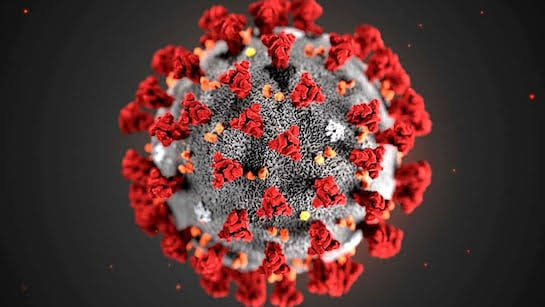Coronavirus infections are once again raising concerns across India. After a rise in cases in places like Hong Kong and Singapore, India is now reporting a surge in infections in various states.
According to data shared by the Delhi government on Friday (May 23), 23 new COVID-19 cases were reported in the capital. Additionally, Ghaziabad reported four cases, Gurugram three, and Faridabad two.
Delhi’s Health Minister, Pankaj Kumar Singh, held a review meeting with health officials to assess the current situation. Authorities are verifying whether the new patients are local or have recently travelled.
Current COVID-19 Situation in India
Kerala appears to be the worst-affected state at the moment. In a recent meeting, Kerala’s Health Minister Veena George directed all districts to strengthen COVID-19 monitoring.
Reports show that Kerala, Tamil Nadu, and Maharashtra account for over 85% of active cases in the country. Kerala has 95 active cases, Tamil Nadu 66, and Maharashtra 56. Other states with cases include Delhi (23), Puducherry (10), Karnataka (13), Gujarat (7), Rajasthan (2), Haryana (1), Sikkim (1), and West Bengal (1).
10 New Cases in 3 Days in Thane
Thane, Maharashtra, reported 10 new cases over the last three days. The municipal body has asked hospitals to stay alert. According to a statement, patients are showing mild symptoms and are recovering at home. Medicines and testing kits are available in adequate quantity, and authorities have urged people not to panic.
Is Another COVID Wave Coming?
Recent reports from India and trends in other Asian countries have sparked fears about another possible COVID-19 wave. However, experts believe the chances of a major wave in India are low at this point. Still, people are advised to remain cautious.
The JN.1 subvariant of Omicron, which is believed to be behind the rise in infections, has been seen in India before. It is not considered as dangerous as earlier variants.
Also Read- COVID-19 Strikes Again: New Variant JN.1 and What You Need to Know
Can New Variants Bypass Immunity?
Experts say that immunity developed from previous vaccines may weaken over time, making people more vulnerable to new, mutated variants. SARS-CoV-2 continues to evolve, and new subvariants may escape the body’s immune response.
That’s why global health experts recommend yearly booster shots, especially for high-risk groups like people aged 65 and above.
Should You Get a New Booster Vaccine?
Vaccines have been updated to better target new variants and boost immunity. People in high-risk categories—such as the elderly or those with health conditions—should consult their doctor about getting the latest booster.
Along with vaccination, following COVID-appropriate behaviour is essential. Maintaining hand hygiene, wearing masks, and avoiding crowded places can help prevent spread.
Even if you don’t get severely affected, you might pass the virus to someone more vulnerable. So it’s important for everyone to stay careful and protect those at higher risk.


